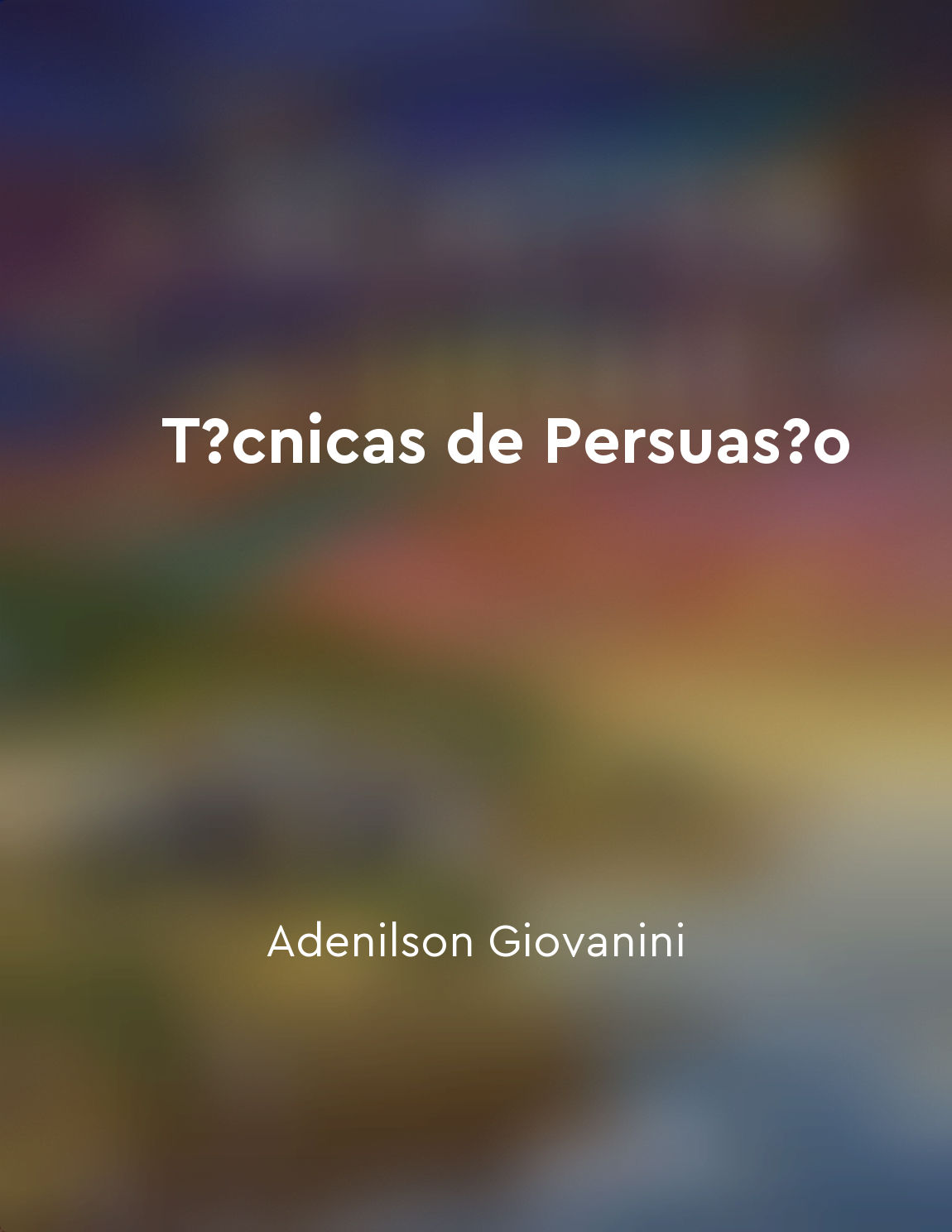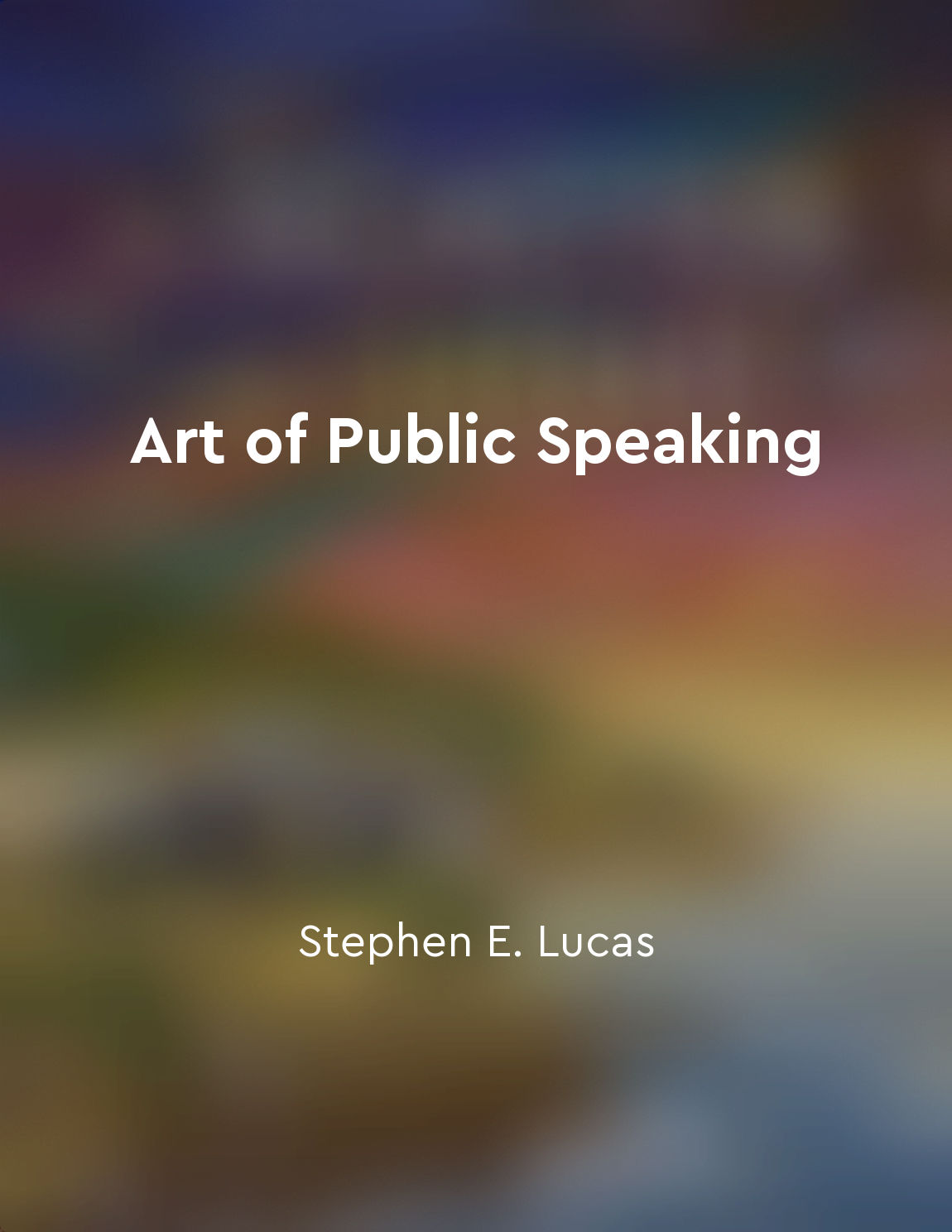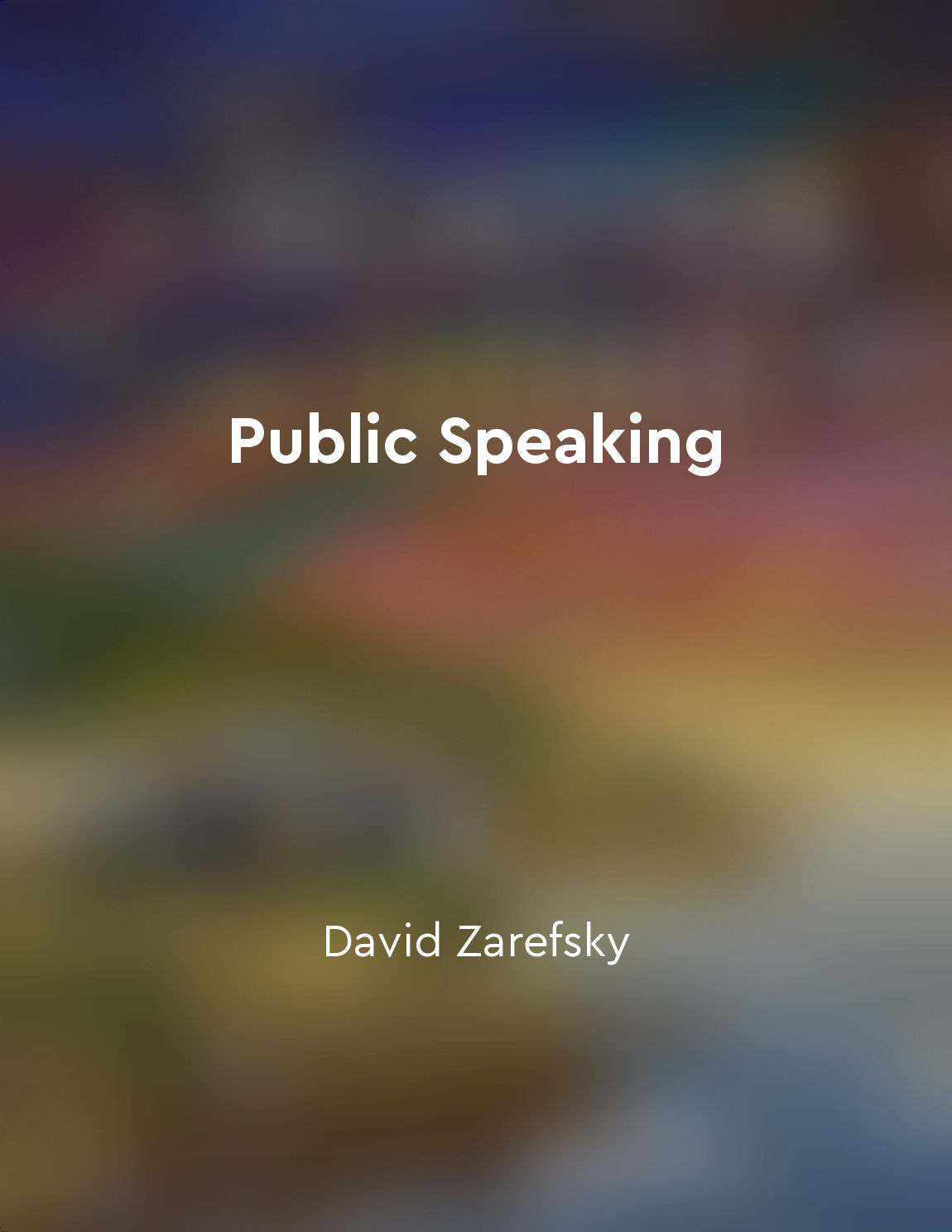Audio available in app
Demonstrate credibility in your arguments from "summary" of A ARTE DA PERSUASÃO by JAMES BORG
To be persuasive, you must prove to your audience that you are trustworthy and reliable. This means demonstrating credibility in your arguments. If your audience does not believe in your credibility, they will not be convinced by your arguments. It is essential to establish yourself as a credible source of information before presenting your case. There are several ways to demonstrate credibility in your arguments. One way is to provide evidence to support your claims. This evidence can take many forms, such as data, statistics, expert opinions, or real-life examples. By backing up your arguments with evidence, you show your audience that you have done your research and are knowledgeable about the topic at hand. Another way to demonstrate credibility is to acknowledge and address counterarguments. By acknowledging the other side of the argument, you show that you have considered different perspectives and are willing to engage in a thoughtful debate. Addressing counterarguments also helps to strengthen your own argument by anticipating and refuting potential objections. Additionally, it is important to use language that is clear, concise, and professional. Avoid using emotional language or making unsupported claims. Instead, present your arguments in a logical and organized manner, using facts and reason to make your case. This will help to establish your credibility and make your arguments more persuasive.- Demonstrating credibility in your arguments is essential for persuading your audience. By providing evidence, addressing counterarguments, and using clear and professional language, you can establish yourself as a trustworthy source of information and increase the likelihood that your audience will be convinced by your arguments.
Similar Posts
Understanding the power of scarcity is essential
Understanding the power of scarcity is a crucial aspect to grasp when it comes to influencing others. Scarcity refers to the id...

Closing the deal is the ultimate goal
The ultimate goal of any persuasive effort is to close the deal. This means that all the techniques and strategies used through...
Use mirroring and rapport building techniques
Mirroring and rapport building techniques are powerful tools that can be used to establish a deeper connection with others. By ...

Emotional intelligence plays a significant role in influencing others
It is crucial to understand that the ability to influence others is deeply connected to emotional intelligence. When we talk ab...
Words are your most powerful tools
It is a truth universally acknowledged that words hold immense power. They have the ability to shape our thoughts, influence ou...
People project their own insecurities onto others
When we are feeling insecure or inadequate in some way, we often seek to alleviate those feelings by projecting them onto other...
Cultivate resilience in the face of adversity
Resilience is a powerful trait that allows us to bounce back from difficult situations and challenges. It is like a mental musc...

Public speaking is a valuable skill
Public speaking is a valuable skill that can open doors and create opportunities for success in various aspects of life. Being ...

Use transitions to guide your audience through your speech
Transitions play a crucial role in connecting ideas and guiding the audience through a speech. They help maintain a coherent fl...
Foster intellectual independence
To foster intellectual independence means to encourage individuals to think critically and form their own opinions based on evi...

